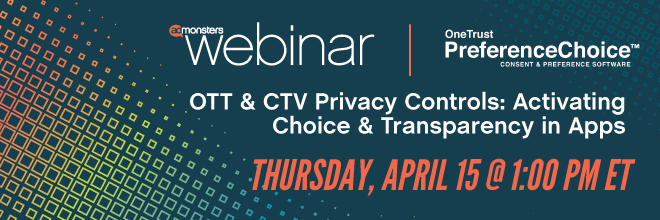 |
||||||||||||||
|
||||||||||||||
| IPG Makes Less Biased Bids & Buys Priority with New DEI Hire |

Image by Gerd Altmann from Pixabay
|
| Making the business of digital advertising more inclusive isn’t just an HR or corporate social responsibility (CSR) play. Yes, it’s about hiring — but it’s also about finance — specifically, about where, how and with whom companies decide to invest. That’s what’s so interesting about this Adexchanger interview with Dr. Femi Olu-Lafe, who’s taken on a new role at IPG where she’ll focus on reducing “bias” across the holding company’s data platforms. It’s a clear example of an industry powerhouse working to make sure that its media investments are diverse, even down to the algorithms that help determine the buying decisions. |
| When marketers really consider the impact of their media spend in terms of diversity and inclusion, it will ultimately translate to where they run their ads. Brand and agency conversations around the efficacy of media buys — especially data-driven campaigns — can often be very cut and dry. Was it effective? Did we hit the impressions or audience targets we needed to hit? Was the CPL or CPM acceptable? (And if it’s bought through an automated platform like a DSP, perhaps there’s no “conversation” at all). Asking new questions such as “have we been fair” or “have we been just” in terms of the media spend — and asking those questions about the data that influenced the decision in the first place — is far more nuanced. This is especially true, as most of the ways ad tech targets ads against users, even in broad demographics, is generally specific enough to be discriminatory, according to Aram Zucker-Scharff, Ad Engineering Director for RED at the Washington Post. And Dr. Olu-Lafe’s task is to help teams across three different business units (Kinesso, Acxiom and Matterkind) ask those nuanced questions as they go on about building new data-driven media plans and products. Dr. Olu-Lafe’s appointment comes just a week after GroupM made news by inking a two-year commitment to buy media from Black-owned company OZY as part of its “responsible investment” buying framework (not to mention Sean “Diddy” Combs’ open letter calling out GM for misrepresenting how much it actually invested in campaigns on his REVOLT media network). The opportunity for publishers then is to make sure you are embodying the inclusiveness that media companies will be looking for. For some pubs, that might mean expanding who’s in the C-suite or on the Board — for others, it could mean consciously choosing to work with ad tech vendors and partners that come from diverse backgrounds. Whether it’s the founding team, the content creators you employ, the stories and personalities that get highlighted in your content, it’s only a matter of time before your company’s level of “inclusiveness” gets factored into the equation that media buyers use for determining whether your site fits in the media plan. |
| What Does Goldman Sach's $75 Million GumGum Investment Say About the Future of Contextual? |

Photo by John Guccione www.advergroup.com from Pexels
|
| As the privacy crackdown on user tracking and ad targeting shakes up the advertising ecosystem, contextual targeting is reemerging as a strong alternative to third-party tracking cookies. In fact, the belief that contextual's comeback is more than just hype showed up in full force this past week when Goldman Sachs Growth invested $75 million in contextual intelligence company, GumGum Inc. This brings the ad tech company's total funding to $122 million. |
| "The move marks a smart investment from Goldman Sachs. I predict the beginning of a trend with more companies and investors betting on contextual as the next big thing. Programmatic contextual has the potential to grow faster than programmatic native, which produced an exit for TripleLift to Vista this month. Contextual advertising is a safe place for brands, as it makes them adjacent to brand safe content, and more relevant to their audience. In this way, it seems like a win-win for the industry," says Patrick O'Leary, founder and CEO at publisher CRM Boostr. Hey, we know that scale is still a major issue when it comes to contextual. But seriously, does anyone even know what scale means right now? Is it time for us to start talking about quality instead? At our recent Publisher Forum Virtual, Scott Messer, Senior Vice President, Media, Leaf Group and Emily Healy, Director, Digital Standards, Publicis Media, had an open and honest buy side/ sell side dialogue about contextual's preparedness for the post-cookie future. While Healy expressed dismay at the lack of standardization and understanding about performance, she was hopeful that buyers and sellers could work together to help brands achieve the kind of reach they seek. "Publishers don't get to talk to the buy side enough," Messer told Healy. "It's very hard to find the collaborators who can help guide us so that we don't keep running into walls continuously. So it's very hopeful to hear there are people who will look at our solutions and help because the race for context is not over." |
| FLoC Block: Origin Trials Begin, but Not on Brave |
| FLoC, Google's replacement for the third-party tracking cookie, started origin trials in Chrome 89. About 0.5% of Chrome users are randomly selected to be part of this trial. The Big G also released a measurement update highlighting new proposals for how the API could apply these privacy considerations while reporting view-through conversions and cross-device conversions. Privacy advocates, researchers, and many adtech folks remain concerned about the possibility of combining cohort ID with PII — which could expose an individual's web behavior and interests. The Brave Browser team is one such group bringing their concerns to bear by disabling FLoC in their software. |
| "In general, the idea that privacy is, and is only, the absence of cross-site tracking, is wrong," wrote Peter Snyder, Senior Privacy Researcher at Brave and Brendan Eich, CEO and co-founder of Brave on the software company's blog. "Any useful concept of privacy should include some concept of 'don’t tell others things you know about me, without my permission.' FLoC is only “privacy-protecting” by cynically ruling out common-sense understandings of what privacy is." Meanwhile, the EFF argues that FLoC will make it easier for marketers to fingerprint users based on the various FLoC IDs they expose. But this is something Google is said to be addressing with its Privacy Budget proposal, according to TechCrunch. For all concerned parties, the time is now to get involved in these trials and start providing feedback and comments so that the Privacy Sandbox evolves from the input of the collective and doesn't end up being just a one-man show. |
| The Lone Star State Goes After Google—Tightens Reins |
| In the state's antitrust lawsuit against Google, Texas alleges that for years, through a program known as “Project Bernanke,” the tech giant unfairly used data from past bids in the company’s digital advertising exchange to give its own ad-buying system an advantage over competitors garnering millions of dollars in ad revenue. But Google maintains that the historical data was used to adjust future bids so that advertisers can win more auctions, thereby denying any wrongdoing. The judge hearing the case has issued a protective order, placing limits on what information (that's been submitted by other companies) the search giant's lawyers will be allowed to see. This is a move to stop them from sharing potentially competitive data with Alphabet execs. |
|
“While we don't know anything specific about the allegations, it is clear that having media and media buying/recommendation tech under the same roof opens room for unique treatment. For instance, when Google released its ads data hub, and the first vendor that was integrated was Google's own ad tech," says Tal Chalozin, CTO and co-founder of Innovid. We've been concerned that perhaps there's been a lack of understanding about the way the advertising ecosystem works when it comes to the various US state's antitrust lawsuits filed against Google and that they would only be playing softball. This latest news could be an indication that isn't the case after all. That's if Texas can actually afford to sue Google. |
| Around the Water Cooler |
Here's what else we're reading...
|
| @{optoutfooterhtml}@ |










